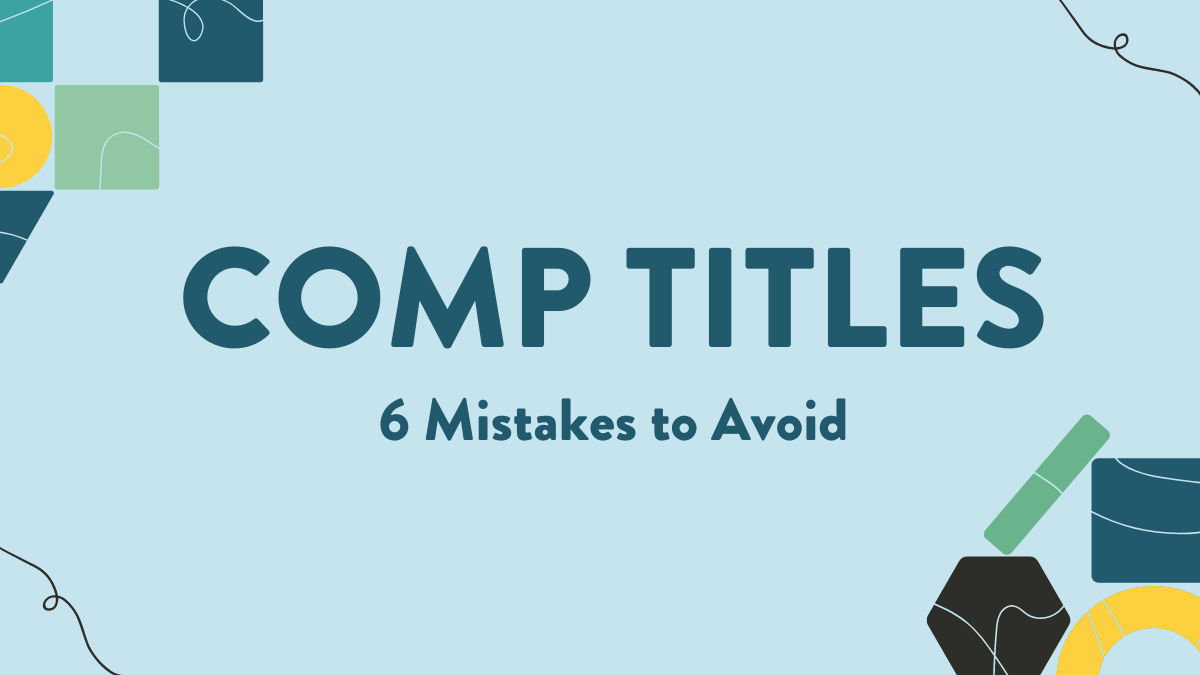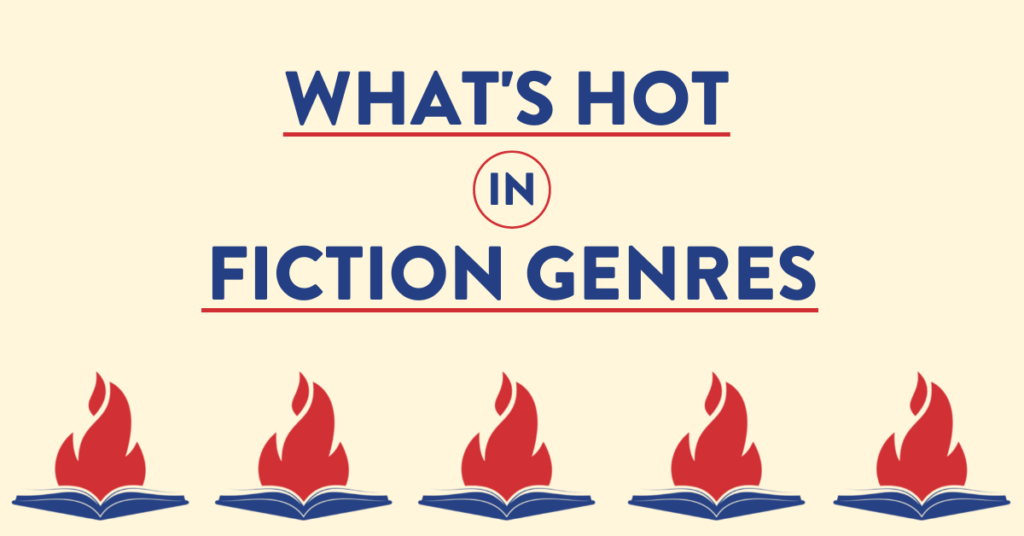
Ah, the dreaded comp titles.
You know you need two similar books to your own when you send a query to a literary agent, but how are you supposed to find them?
And how can you figure out which ones to choose?
I’ve helped a lot of authors land agents over the years, and I’m going to tell you all the mistakes that you should avoid (yes, there are a lot of mistakes to avoid).
You THINK you’re communicating one thing when you choose a comp title, but you’re actually saying something completely different.
1. Popular Books Choice
The Popular Books choice is one of the most common mistakes that authors make when choosing comp titles.
They think: How can I go wrong if I choose Harry Potter and Hunger Games? Those books were fantastic!
But these are almost always the wrong choices. Agents would get laughed out of the publishing house if they brought these comp titles to publishers. Publishers are usually looking for more mid-level books, not the crazy bestsellers.
- What you think you’re saying: My book is going to be popular like these bestsellers
- What you’re actually saying: I have wildly unreasonable expectations for how my book will sell
You’re also telling the agent that you’re not a very big reader, if these are the only books you could come up with.
2. Old Books Choice
By “Old” books I mean books that are older than 3 years.
Yes, when doing comp titles, more than 3 years is considered old.
That’s because comp titles are meant to give publishers a sense of how this book might sell. If you’re choosing books from a decade ago, the publishing landscape and book buying market are completely different.
And if you’re choosing classics from twenty or forty or sixty years ago, that’s SUPER unhelpful.
- What you think you’re saying: My book is going to be a classic
- What you’re actually saying: I’m not reading any books that are being published now
3. Slightly Different Genre
Let’s say you have a memoir.
Make sure you pick comp titles that are firmly within the memoir genre, rather than ones that are lightly fictionalized. For instance, “Everything Sad is Untrue” is a fictionalized memoir, so even though the front cover says it’s a true story, it’s not a good comp title for a memoir.
Or if you have a fantasy subgenre, like Anthropomorphic fantasy or Gaslamp Fantasy or Urban Fantasy, then …
You don’t want to pick comp titles that are fantasies, but are in a slightly different subgenre. The comp should definitely be in the narrow subgenre of your book.
- What you think you’re saying: my book is cool
- What you’re actually saying: I don’t understand what genre my book is
4. No Comp Titles
I know, I know, it’s incredibly difficult to come up with comp titles.
But the choice is never never never to avoid the comp title paragraph. It’s better to at least attempt to put some books down as comp titles, because then the agent can tell that you tried.
And my recommendation is to set aside 5 or 6 hours to find the right comp titles. It’s truly a herculean task, to come up with a list of 10 or 15 and then slowly narrow them down until you have *just* the right ones.
It’s completely natural to start sending a query letter out to agents, and then realize your comp titles could be improved, and switch them. I’ve even switched them multiple times, and have several different comp titles for different types of agents.
- What you think you’re saying: my book is original
- What you’re actually saying: I’m not a reader
Don’t be afraid to customize your comp title for a specific agent (for instance, listing someone they represented as a comp title).
5. Focusing on Content
It IS possible to choose books that are actually too similar to your book. But similar in a particular way.
For instance, it’s a bad idea to focus too much on the content of the comp titles rather than the container.
Perhaps you have a husband/wife relationship in your novel, so you look for novels that also have husband/wife relationships.
That would be great, but it’s not the most important thing. The most important thing is nailing the:
- Genre
- Length
- Tone
Your comp titles are cousins, not siblings. They don’t have to have big elements line up, they just need to have enough genetic material in common that the publisher can see that your book might sell in a similar way to the comp title books.
That way they’re not flying blind when they’re offering you an advance, they’re basing it off the sales number and profitability of your comp titles.
Oh, you didn’t know your comp titles could end up factoring into how large your advance is? Well, consider yourself informed.
6. Too Many Comp Titles
The standard is two.
It’s pretty rare to see only a single comp title or to see three comp titles. If you want to play it safe, simply stick to two.
If you go full bore and whip out six books that are comp titles, the agent is going to blink and shake their head and you’re going to be one step closer to a form rejection.
Whittle your selections down until you only have the best two. And don’t worry — if you’re unsure, you’ll probably be able to talk it over with the agent before they send your manuscripts to publishers, and if they think your other picks are better, they’ll use those.
- What you think you’re communicating: I’m well read and my book fits so well in the publishing firmament
- What you’re actually communicating: I’m indecisive and I couldn’t choose which books were best
Final Thoughts
Lastly, don’t put too much pressure on yourself. If the agent likes your book, they’re still going to take you on, even if your comp title suggestions are terrible.
Agents often do their own research and choose their own comp titles to send to publishers, so don’t sweat it. Do your best, and hopefully it will be good enough to pique the agent’s interest.
Don’t forget to leave a comment about whether these tips worked for you!



One thought on “What Your Comp Titles Might be Telling Agents”
THANKS! This is very helpful and clear.